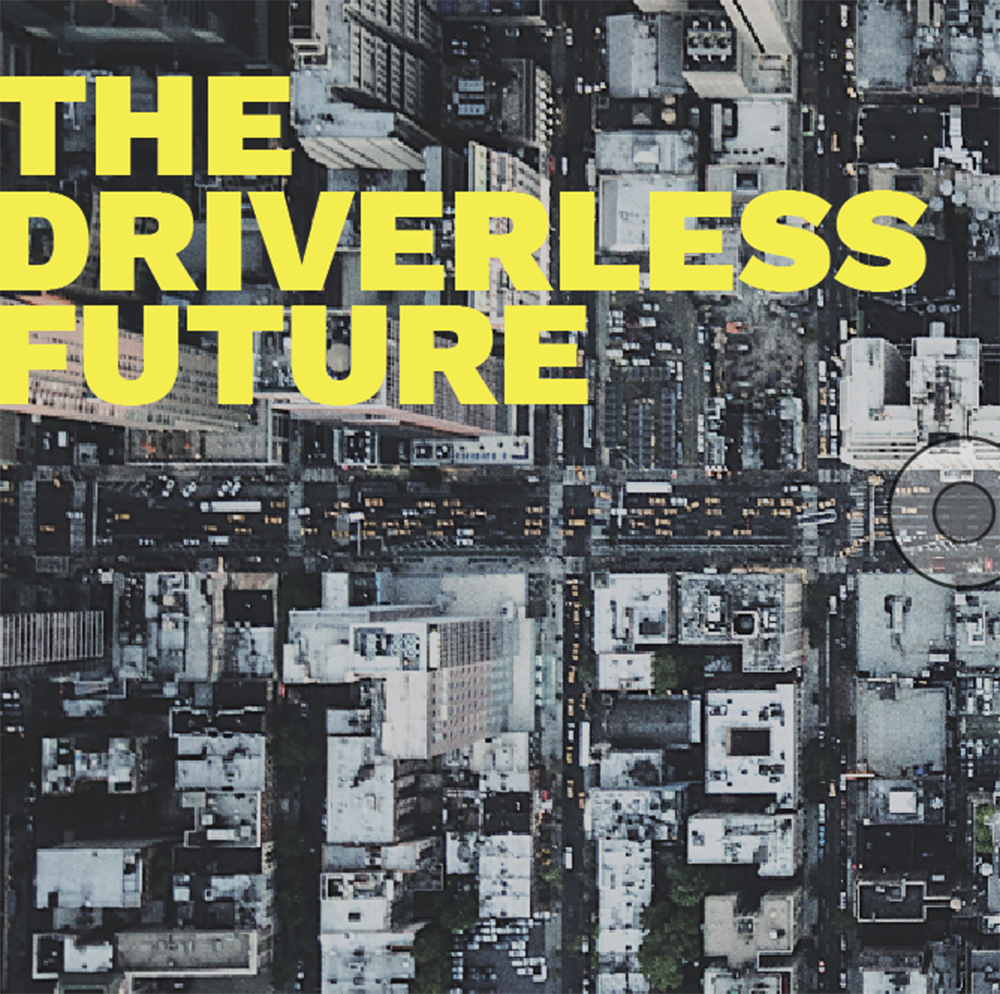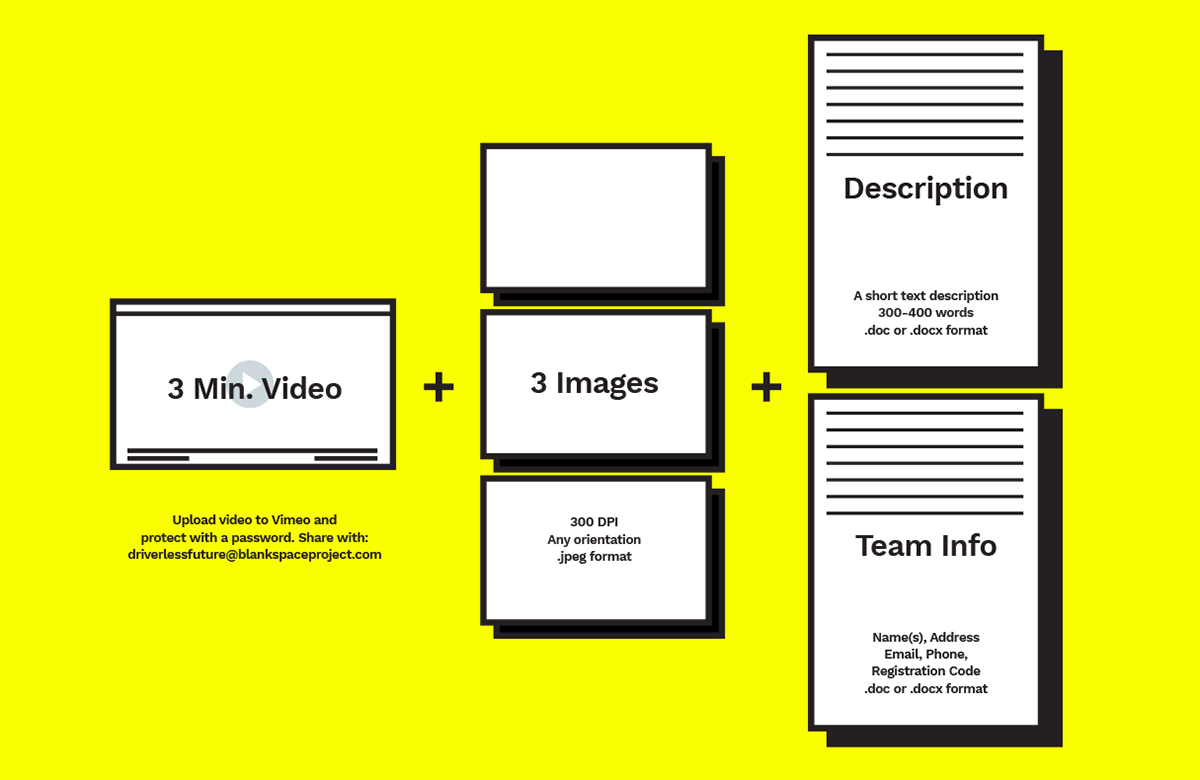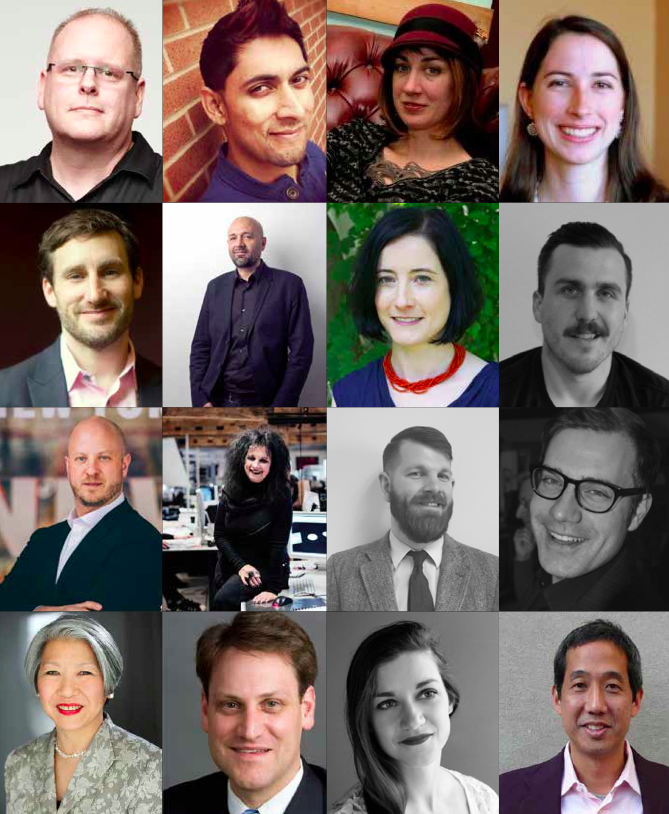Submitted by WA Contents
Interested in autonomous transportation? Blank Space seeks for proposals for Driverless Future
United States Architecture News - Apr 06, 2017 - 16:52 14057 views

After hard-working competition years since 2013, Blank Space has started a new challenge for its test-based competition environment as different than its annual competitions. Called Driverless Future, the competition will investigate autonomous car technologies, which are definitely inevitable part of the future of cities. The Driverless Future Challenge asks participants to evaluate the future of autonomous transportation in New York through the lens of OneNYC.
''That’s inescapable. Every major vehicle manufacturer has an autonomy program in place, and many cars currently on the roads already have semi-autonomous capability. Fully self-driving machines may arrive as taxis, tractor-trailers, delivery vehicles, and, of course, our personal cars. We’ll kick back and let the machines be our chauffeurs, our baby-sitters, and our minions,'' said Francesca Giuliani and Matthew Hoffman, competition organisers and founders of Blank Space.
Competitors can register and develop their entries until the final submission deadline on May 19 through the website.

What will that mean for New York City? It’s a staggeringly complicated question— perhaps even more so than it might for any other major city in the world, given the unique challenges present in the Big Apple. Will autonomous cars make things better, or worse? That’s certainly within our power to decide, but the window of opportunity to prepare is surprisingly narrow. While the true timeline for the arrival of the tech is up for debate—fully autonomous cars aren’t even legal at the moment.
''It’s realistic to assume that within 10 or 20 years, we’ll see cities and highways populated with robotic cars chauffeuring their dozing or web-surfing occupants around town. What’s not up for debate, however, is that this will generate an enormous impact on society, the environment, business, and the fabric of urban mobility, both locally and globally. To ensure that New York City itself fully takes advantage of the benefits of this new technology— rather than let it unfold haphazardly with no accommodations and restrictions— planning and preparation must begin immediately,'' stated in the competition brief.
The Driverless Future Challenge seeks proposals that actively shape the city’s response to driverless cars. It’s not about the cars themselves, but everything else: from parking solutions, to new uses of roadways, intersections, and sidewalks. What tools can be built to increase the accessibility and use of autonomous mass transit? How can shipping and logistics be improved? How can new business models and software tools be leveraged to shape our surroundings? Participants in the challenge will pitch concrete solutions — and together with our partners, we will help the winning entries turn their proposals into real companies and products. Because if we don’t start shaping the city, who will?
Blank Space partnered with the NYC Mayor’s Office, New Lab, Fast Company, and AIANY to host the challenge and support winning entries beyond the challenge. Balnk Space is joined by the NYC government agencies that are grappling with autonomous transportation the most: the Department of Transportation (DOT), Taxi and Limousine Commission (TLC), and Economic Development Corporation (EDC).
''The city isn’t merely accepting what’s coming and adapting to it; it is encouraging you, as designers, architects, engineers and urbanists, to meet the extreme challenges of a large-scale, complex urban machine with even more advanced thinking. It’s in their interest as much as it is ours,'' said the team.

Jury members include Jeff Merritt (NYC Mayor’s Office of Technology), Susan Chin (Design Trust for Public Space), Kate Daly (NYCEDC), Sander Dolder (NYCEDC), Danny Stillion (IDEO), Davin Stowell (Smart Design), Aravind Kailas (Volvo), Michael Replogle (NYC DOT), David Belt(New Lab), Dunia Dupont (New Lab), Benjamin Prosky (NY AIA), David Piscuskas (1100 Architect), Rodney Stiles(NYC TLC), Eric Rothman (HR&A Advisors), Jeffrey Inaba(INABA WILLIAMS), Odile Decq (Studio Odile Decq), Juergen Mayer H (J Mayer H), Matt Sweeney (Uber), Courtney Ehrlichman (Traffic 21 Institute), Matthew Daus(Windels Marx Lane & Mittendorf), Ken Krueckemeyer(Strategies for Cities), Marco Plewe (Mercedes Benz Research & Development), Michelle Cheung (Mercedes Benz Research & Development) and more.
Prizes
Four finalists will receive travel stipends to present their proposals at the ''Pitch The City'' event in June 2017. Each team will show their video and have a chance to answer questions from the expert panel.
Four finalist teams will receive one-year flex memberships for New Lab, where they can access work space and state-of-the-art fabrication facilities to realize their proposals. They will also have a chance to present their designs at the annual Fast Company Innovation Festival in October 2017.
In addition, all competition participants will receive a free subscription to Fast Company magazine, either in digital or print format (participants can choose the delivery method when they register).
1st prize
-$2,500 prize
-1-year flex memberships for New Lab for up to 3 team members ($15,000 value)
Competition brief can be downloaded from the competition webiste and late registration fee is $90 until submission deadline. Winners will be announced at ‘Pitch The City’ in June 2017.
All images courtesy of Blank Space
> via Blank Space
